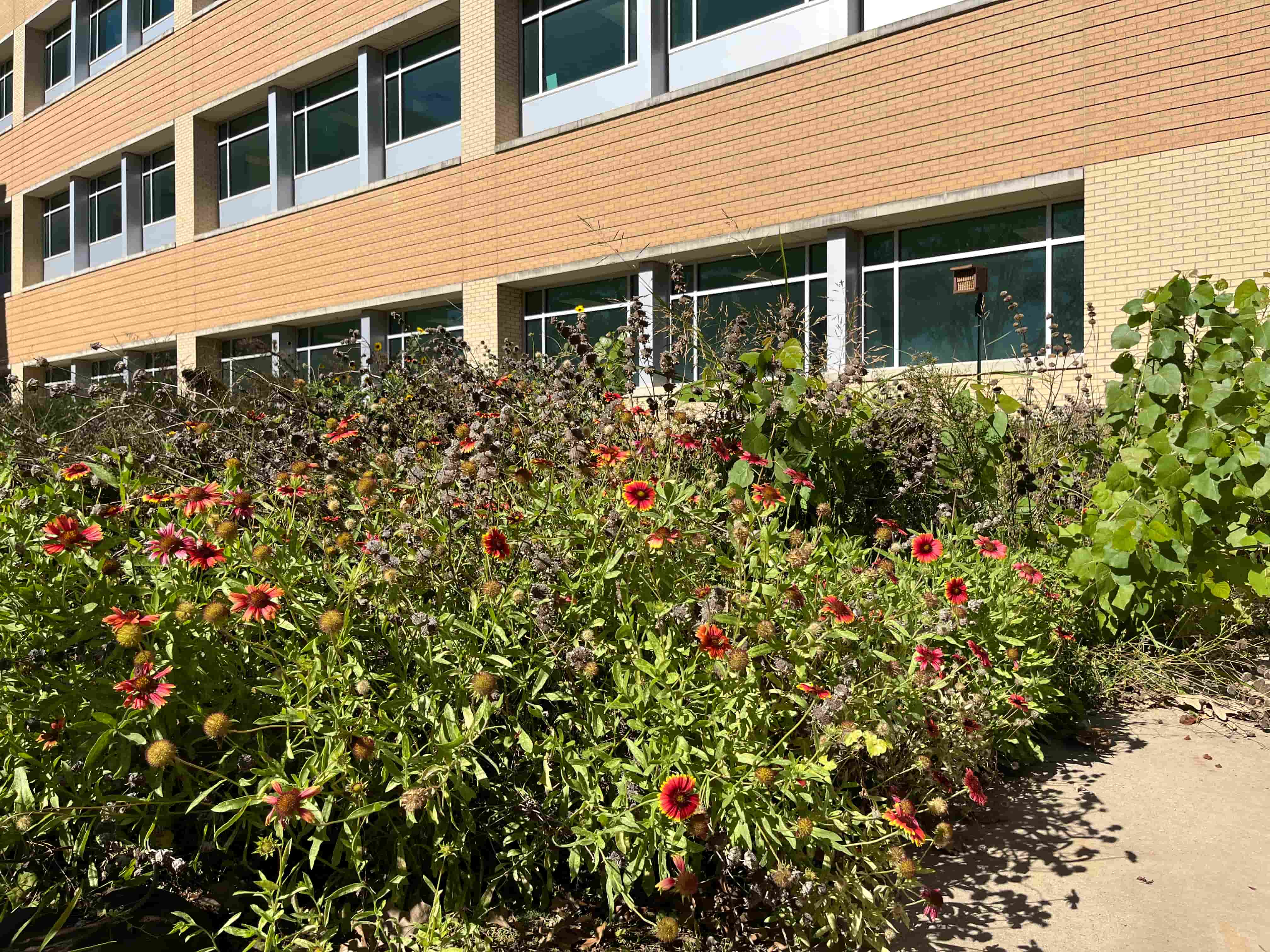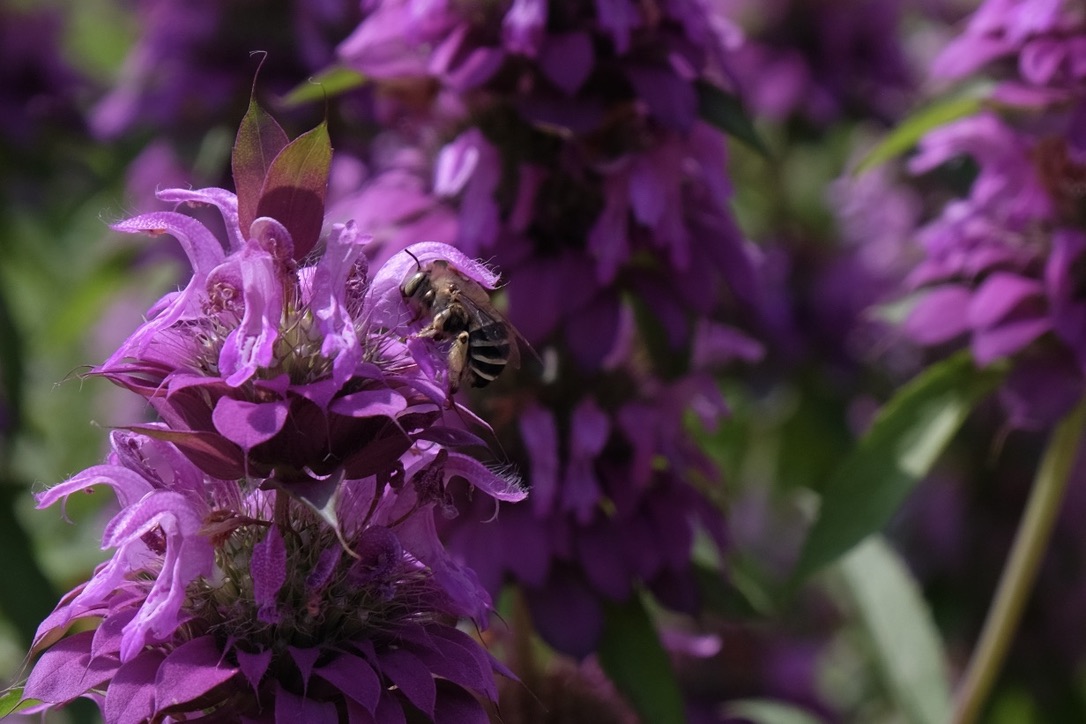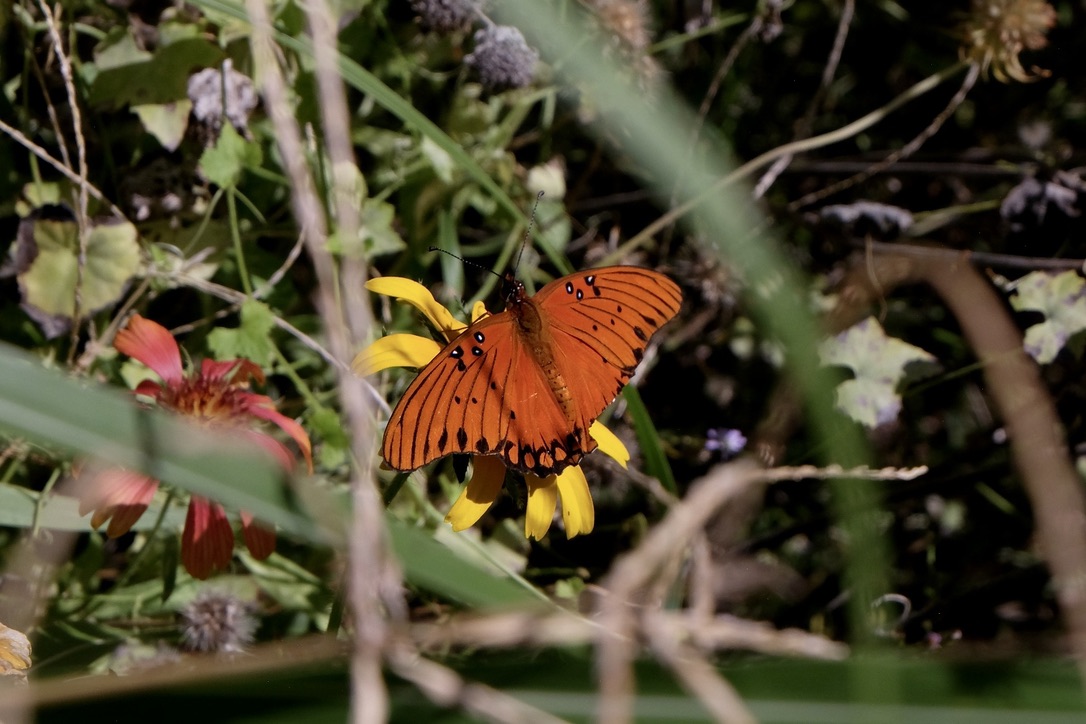
DENTON (UNT), Texas — A once barren plot of land on the University of North Texas campus is now thriving with activity, thanks to the vibrant growth of Texas native wildflowers.
UNT Grounds Supervisor Clay Briggs had the idea to try something new at the Chemistry Building after a few harsh winters left the area in poor condition.
“All it really seemed to do was grow Johnson grass, which required our already stretched-thin staff to have to spend time pulling and spraying weeds,” Briggs said. “That's when it occurred to me that maybe we could sow some native wildflowers that might outgrow the unwanted weeds.”
Briggs and his team spent only half a day prepping and sowing the land. After that, their only task has been to weed it weekly, creating a low-maintenance flower plot. The plot is similar to the previously established Pecan Creek Pollinative Prairie at Discovery Park and the main campus Parking Lot Preserve next to Lot 11.

Since the flowers began blooming in the late spring, students with UNT Bee Campus USA Committee, funded by the We Mean Green Fund, and UNT Society for Ecological Restoration have been documenting the insects visiting the patch using a site called iNaturalist. They’ve recorded 53 different species, including a rare species of bee.
“The California Digger Bee has only 129 documented sightings on iNaturalist in the broader Dallas-Fort Worth area, with only 15 in Denton County,” said Bee Campus Committee Chair Brie Poe. “It’s noteworthy that this bee has been observed only in this patch in the city, especially given how visually striking the species is.”
Ethan Phillips, an ecology major, also installed native bee boxes, a We Mean Green Fund initiative, at the wildflower patch. Since June, he’s identified 10 different bee species, including the American bumble bee, which is considered vulnerable. However, their numbers have dwindled as temperatures have dropped.

“Recently, the only bee species out is the non-native European Honeybee,” Phillips said. “They outcompete the native species, and we should focus on protecting those native to our area.”
The Bee Campus Committee and student volunteers are working on expanding the initiative by seeding new wildflower plots around the Environmental Education, Science & Technology Building, with results expected in spring.
“Native bees in particular suffer population declines in urban areas,” said Jaime Baxter-Slye, clinical assistant professor for ecology education and advisor for the student groups. “By staying true to our We Mean Green philosophy, the UNT Grounds crew is helping us create islands of native Texas habitat in the sea of urban campus development.”